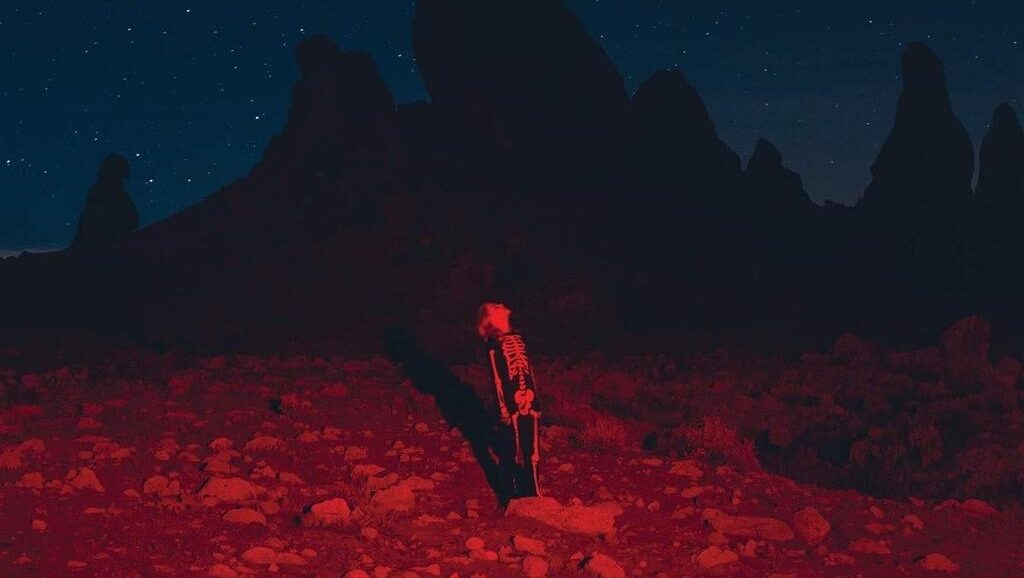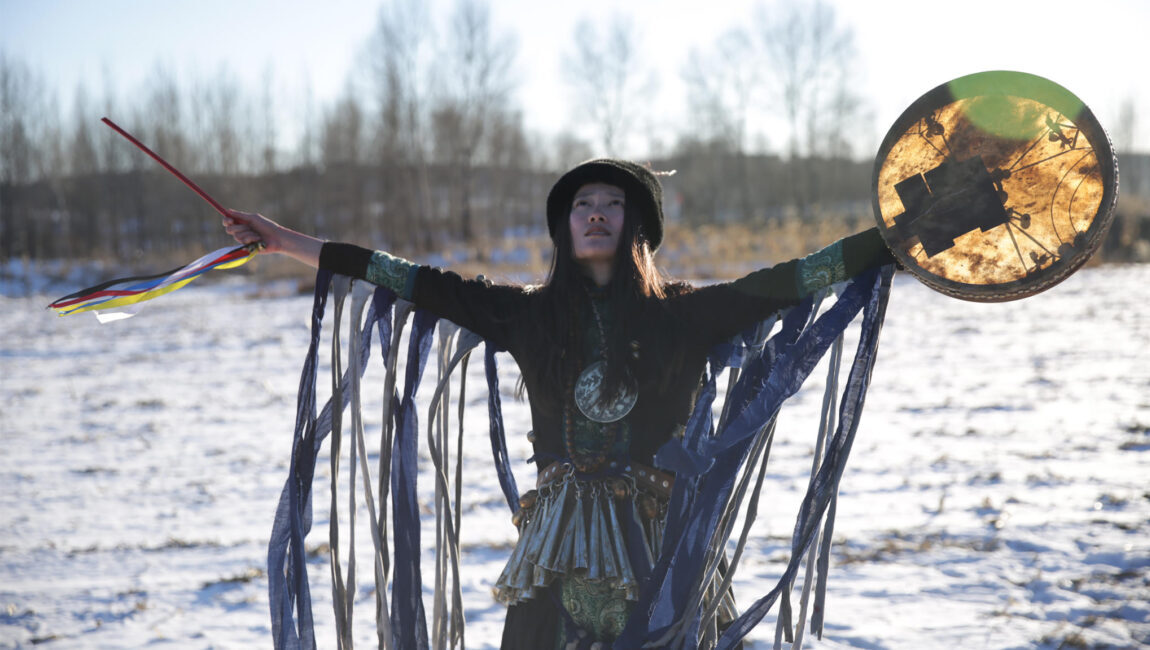The Wild Boys opens with a shimmering black-and-white title card, an homage to Kenneth Anger’s Fireworks, and voiceover that soon takes the viewer back to the violent origin of this delirious, gender-bending tale. Fueled by an impulse dubbed only “TREVOR” (which may stand in for hormonal adolescent fervor, violent masculine tendencies, or both), a group of five pubescent boys (all played by women) assault and murder their literature teacher in an orgiastic recreation of Macbeth. Consequences swiftly follow: The boys are sent off to sea with a figure referred to only as the “The Captain” (Sam Louwyck). Tasked with “taming” the boys and stamping out their unbridled, feckless impulses, The Captain guarantees that he will bring them back to their parents after two months. But he makes no promises that they will survive. The subsequent voyage takes place in a Querelle-like space of fervid sexual fantasy (and humiliation), though the intermittent shifts to color — most of the film proceeds in 16mm black-and-white — are awash in blues and violets as opposed to the red and oranges of Fassbinder’s film. During their journey, the Captain tosses aside the literature of these “pedantic little bourgeois” whose professed “vices” are pleasure and art. Soon, they arrive at an island where primal sensation is everything — a plant that sates thirst with “divine,” milk-white ejaculate; trees that blossom with hairy “black peaches”; a “field of groping grass”; and anthropomorphic greenery that offers sexual companionship if one feels “tense.” Whether all this is “feverish delirium” or reality, the boys do not know. The Captain eventually tries to take them away, but they rebel, murder him, and return to the island of their own accord.
Bertrand Mandico’s film is not unlike Lucile Hadžihalilović’s Evolution, which likewise harnessed the allegorical, transformative context of the ever-changing ocean and traded in specifically male body horror.
No Disney-fied Pleasure Island à la Pinocchio, the space of the island (actually called “Dress Island”) tames the boys by literally transforming them into girls. “A new perspective opens to you,” one of the five says, not long after their prosthetic dick detaches in an abrupt, hilarious sight-gag. Thematically, Bertrand Mandico’s film is not unlike Lucile Hadžihalilović’s Evolution, which likewise harnessed the allegorical, transformative context of the ever-changing ocean and traded in specifically male body horror. That said, The Wild Boys is far, far more unhinged. When one of the boys is trapped in a sticky spider’s web, he’s told to succumb to his desire to urinate; he relents and is thus freed. It could be said that Mandico as well aims to ‘release’ the viewer from any intellectual inhibitions, and overwhelm pedanticism with pure sensorial pleasures. As a whole, the director’s film is vigorous, imaginative, and thought-through. Unfortunately, it’s also relentless and exhausting. Despite Mandico’s best attempts, The Wild Boys fails to fully seduce or overwhelm — so instead it registers, ultimately, as an assaultive swirl of symbolic signifiers.
Bertrand Mandico’s The Wild Boys streamed on Mubi from September 14 — October 14.







